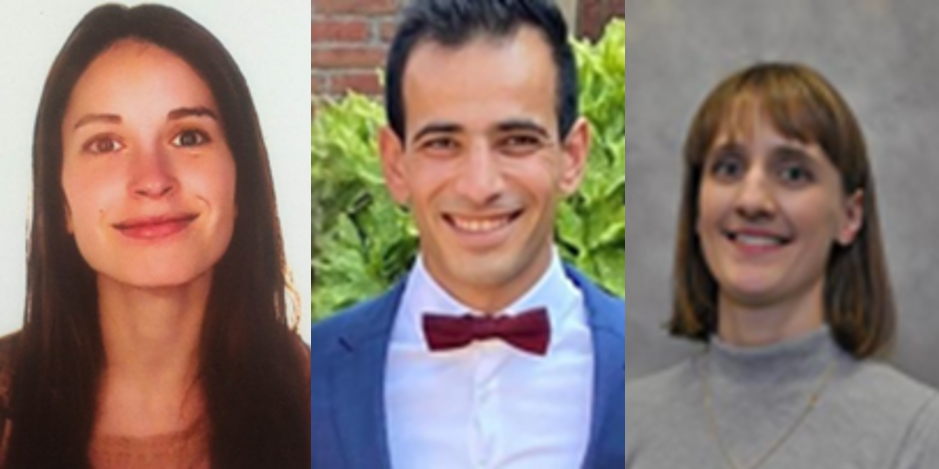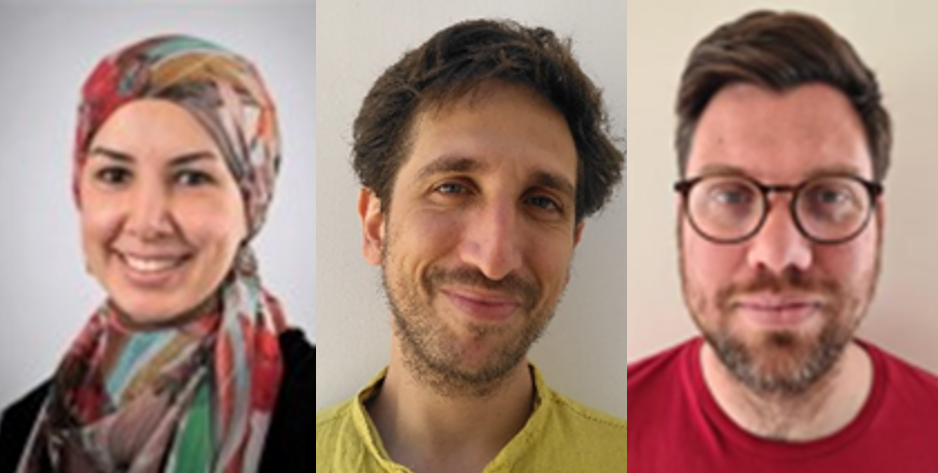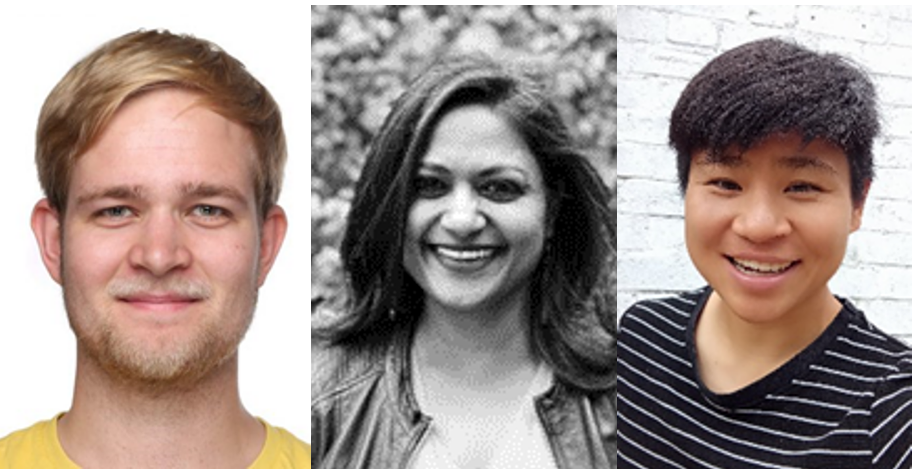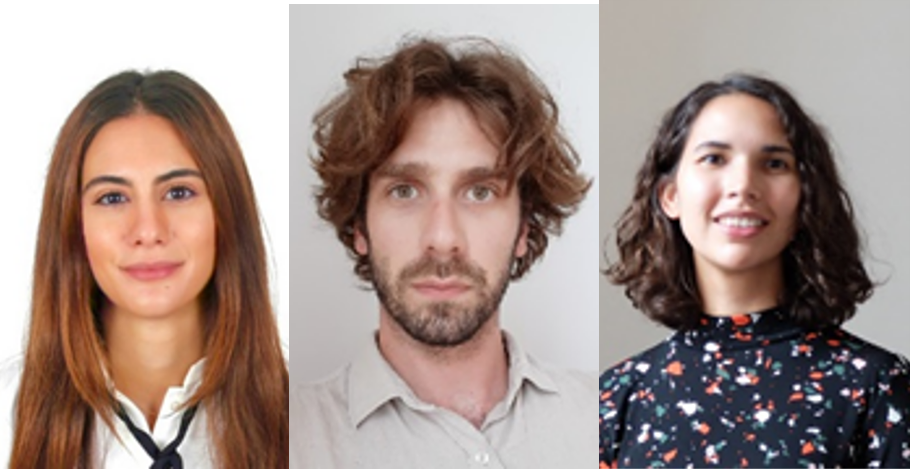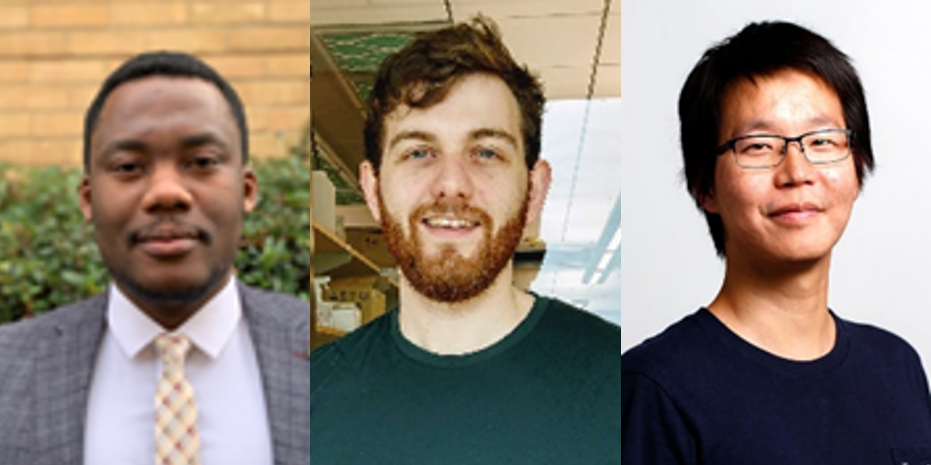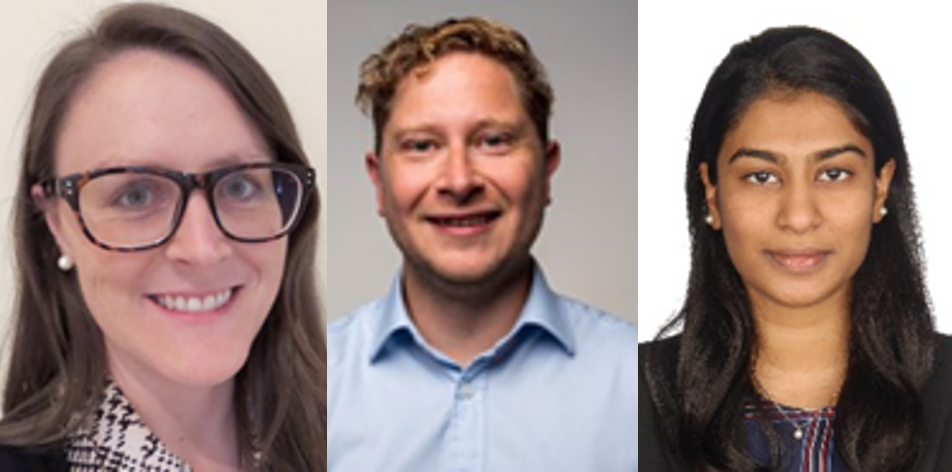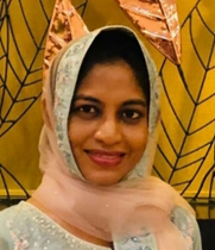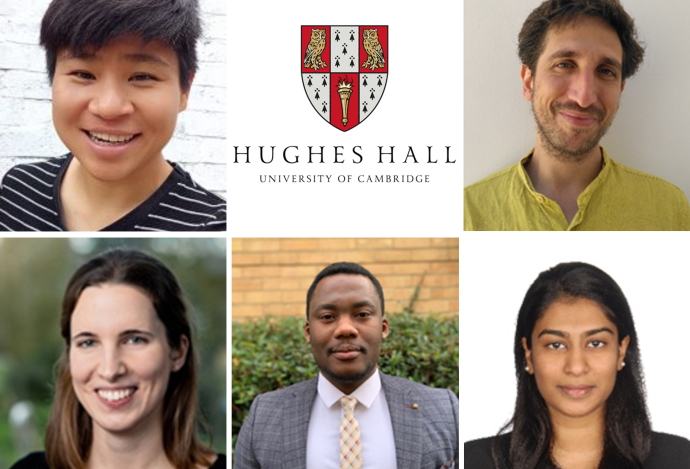A warm welcome to the Research Associates, Associates and Visiting Associates joining Hughes Hall this year.
The community of postdoctoral scholars in Cambridge numbers over 4,000 and is responsible for much of the research that underpins the University’s world-leading reputation. Hughes Hall has a particularly strong community of research associates and associates and we continue to increase numbers appointed. This is a vibrant, frequently published and often award-winning group of professionals – from both academic and wider worlds of research, practice and policymaking – forming a key contact point with Departments and Faculties in Cambridge and with other institutions beyond the city, and around the world.
Research Associates
Dr Ariadna Albajara, Biomedical, Education and Humanities, Arts and Social Sciences
Ariadna Albajara is a Wiener-Anspach Postdoctoral Fellow based in the Department of Psychiatry in Professor Tamsin Ford’s group, the Child and Adolescent Resilience and Mental Health Team, exploring classroom strategies to improve the mental health of children with probable Attention-Deficit/Hyperactivity Disorder (ADHD) .
Dr Islam Alshamleh, Biomedical, Business, Humanities and Social Sciences
Islam is a post-doctoral fellow at Cancer Research UK (CRUK) Cambridge Institute with a research focus on cancer cell metabolism. He started his research career in 2016 with a Marie Curie dual PhD fellowship at Goethe University Frankfurt, and the University of Birmingham, where he studied metabolism of acute leukaemia and identified a potential therapeutic target in this disease.
Dr Elizabeth Byrne, Education
Elizabeth is a Research Associate in the research centre for Play in Education, Development, and Learning (PEDAL) at the Faculty of Education. She is also affiliated with the LEGO Foundation in Denmark. Her research focuses on the development and evaluation of playful educational approaches that promote children’s active engagement in learning. She has an interdisciplinary background crossing psychology, cognitive neuroscience, and education.
Dr Aysa Derya Cavga, Biomedical, Education, Humanities and Social Sciences
Dr Derya Cavga is a postdoctoral researcher in the laboratory of Prof. Jussi Taipale, at the Department of Biochemistry. Derya’s current research aims to identify small molecules that can inhibit transcription factor – DNA interactions that drive cancer. She uses the high-throughput SELEX method with the help of liquid handling robots and Illumina sequencing, conducting both the wet-lab and sequence data analysis aspects.
Dr Gabriele Chierchia, Education, Humanities and Social Sciences, Biomedical, Business
I am very interested in social decision making: how we learn from others and how we are influenced by them, how we cooperate and compete with others. My work shows how heightened susceptibility to social influence during adolescence can be leveraged to promote prosocial behavior. I also developed the largest open-access task to measure non-verbal reasoning abilities in adolescents and adults. I’m currently working on a longitudinal digital intervention for adolescent depression in rural areas of South Africa and Uganda.
Dr Daniel Cooper, Biomedical
Dan is a Clinical Lecturer in Renal Medicine at the Department of Medicine and a Specialist Registrar in Renal Medicine and Internal Medicine at Addenbrooke’s Hospital. His research focuses on the epidemiology and pathophysiology of acute kidney injury in infection, as well as clinical trials in global health. Dan has worked clinically in West Africa and Southeast Asia, including Sierra Leone during the 2014-2015 Ebola epidemic and has research collaborations in Malaysian Borneo, West Africa, Australia and the UK.
Dr Amina Dulac Biomedical, Physical Sciences
Amina is currently a Post-doctoral Research Associate at the University of Cambridge, in the group of Dr Marta Zlatic. Before moving to Cambridge, she first studied computer science and obtained an engineering degree from Centrale Marseille, in France, and a Master degree from Keio University in Japan. She then went on to attain a PhD in neuroscience at PSL University in Paris. She is now working on learning processes in the model organism of the Drosophila larva, particularly focusing on inter-individual differences.
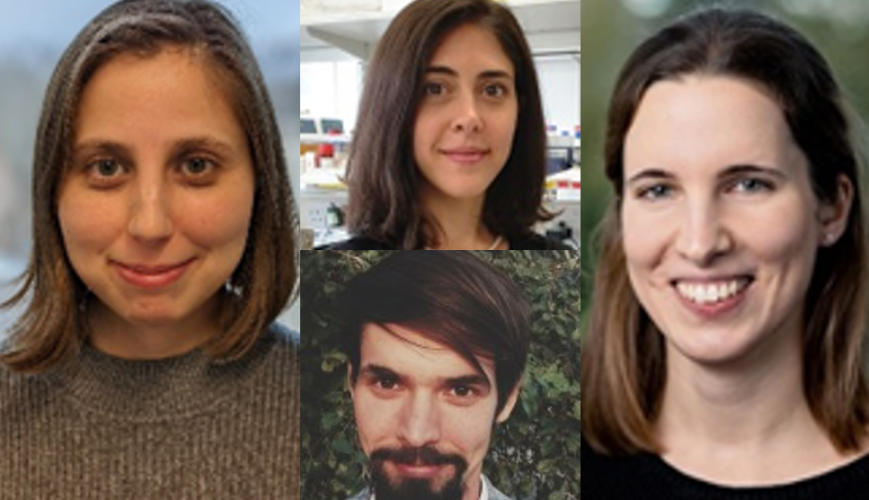
Dr Amina Dulac (left), Dr Marta Ferraresso (top centre), Dr Vaclav Gergelits (bottom centre) and Dr Johana Grinat join as Research Associates
Dr Marta Ferraresso Biomedical, Education, Humanities and Social Sciences
In 2018, Marta completed her PhD at the University of Cambridge on targeted therapies and soon after, she started a research associate position in collaboration between Cambridge University and the Uganda Cancer Institute in Kampala. During her time working between Kampala and Cambridge, she was leading a team on endemic Burkitt Lymphoma (eBL). Currently, she is developing a biomarker detection assay to facilitate early eBL diagnosis associated with EBV and malaria infection in LMIC. She has also founded an NGO in Uganda, called Fund A Future, that promotes education and healthcare for disadvantaged children.
Dr Vaclav Gergelits, Biomedical, Education, Physical Sciences
Vaclav is a postdoctoral researcher at the Babraham Institute (neuro)immunology laboratory. He holds degrees in General Mathematics (BSc), Mathematical Statistics (MSc), and Bioinformatics/Genetics (PhD). He uses mathematical modelling and bioinformatics tools to understand the dynamics of immune cells and tissue residency of regulatory T cells (Tregs) in particular. The findings about the expected dwell time and apoptosis rate of T cells in tissues can be also harnessed therapeutically. In continuation, focussing on the brain, Dr Gergelits is aiming to understand the interactions of the immune system with brain-specific immunology in health and brain injury and their consequences for ageing.
Dr Johana Grinat, Biomedical
Johanna is a Marie Curie postdoctoral fellow in the group of Dr Maria Christophorou at the Babraham Institute. Her research focuses on the regulation of stemness and cell fate, and how this is altered in diseases such as cancer. She completed her BSc and MSc degrees in Biomedical Sciences at the Philipp University of Marburg and Johannes Gutenberg University Mainz, Germany. In 2020 she obtained her PhD in Molecular Biology from Humboldt University of Berlin for researching the regulation of intestinal cancer stemness at the Max Delbrueck Centre for Molecular Medicine (MDC).
Dr Janek Gröhl Biomedical, Physical Sciences
Janek Gröhl received his M.Sc. degree in medical computer science from the University of Heidelberg and Heilbronn University of Applied Sciences in 2016. He received his Ph.D. from the medical faculty of the University of Heidelberg in April 2021. He worked as a postdoctoral researcher at the German Cancer Research Center in Heidelberg, Germany and is currently working with Prof Dr Sarah Bohndiek at Cancer Research UK, Cambridge Institute in Cambridge, United Kingdom.
Dr Maya Indira Ganesh Education, Humanities and Social Sciences
Maya Indira Ganesh is a technology and digital cultures researcher, writer, and educator. She co-leads a Masters program (MSt) on AI, Ethics, and Society at the University of Cambridge, and is also a senior research fellow at the Leverhulme Centre for the Future of Intelligence. She was awarded a Drphil in Cultural Sciences from Leuphana University, Lüneburg, Germany, for doctoral work that analysed the emergence and shaping of ethics in the context of autonomous vehicles. She also works as a writer and curator with arts and cultural institutions in Germany on art, culture, and AI.
Dr Angkana Huang Biomedical, Education, Humanities and Social Sciences
Angkana T. Huang, aka Hat, leverages her multidisciplinary experiences (industrial design, computer science, and biology) to understand factors that shape transmission of infectious pathogens, focusing on those that disproportionately affect under-resourced populations, and to develop suitable means to combat public health threats in these settings. At population scales, she studies how changes in demography and societal interactions impact the ecology and evolution of pathogens.
Dr Konstantina Maragkou Education, Humanities and Social Sciences
Konstantina is an applied economist specialising in quantitative methods and quasi-experimental research designs. Her research addresses timely topics in education particularly looking at the post-16 education trajectories of young people and inequalities in participation and attainment, and the drivers of it – including socio-economic background, family composition, personality traits, school factors and information advice and guidance.
Dr Nicola Moretti Business, Education, Physical Sciences
Nicola Moretti is a research associate at the Engineering Department. He works with the Asset Management Group at the Institute for Manufacturing (IfM) and is part of the Distributed Information and Automation Lab (DIAL). His research focuses on developing and demonstrating effective approaches and tools for integrating building and infrastructure data from different sources to support asset management processes.
Dr Joana Nascimento Business, Education, Humanities and Social Sciences
Joana Nascimento holds a PhD in Social Anthropology from the University of Manchester. Her research explores ethnographically the social, cultural and political-economic complexities of contemporary work and livelihood strategies, focusing on people’s everyday lived experiences and their relation to particular pasts and imagined futures. Her most recent research project in the Outer Hebrides of Scotland focused on the work, workers and workplaces involved in the production of Harris Tweed.
Dr Kwadwo Oti-Sarpong Business, Humanities and Social Sciences
Kwadwo is a Senior Research and Teaching Associate in Urban Systems and Infrastructure Management at the Cambridge Centre for Smart Infrastructure and Construction (CSIC), Department of Engineering. His interdisciplinary research trajectory falls under the overarching theme of technological innovations in the urban built environment. In his current role he conducts research into responsible placed based leadership for developing and implementing digital innovations in the urban built environment to deliver public value.
Dr Daniel Robins, Business, Humanities and Social Sciences
Daniel Robins is a Human Geographer with a specialism in Latin American migration. His research interests include sustainable economies, migration and diaspora studies, alternative economies, alternative remittances, lifestyle migration, urbanisation, geographical imaginaries, immobility, globalisation, national identities. He is a Research Associate at Cambridge Zero and has recently been awarded a Leverhulme Early Career Fellowship in the Oxford School of Area Studies at the University of Oxford.
Dr Lewis Stevens, Biomedical
Lewis Stevens is an evolutionary biologist and postdoctoral researcher at the Wellcome Sanger Institute. My research uses DNA sequencing technologies and computational approaches to understand the evolution of life on our planet. He works as part of the Darwin Tree of Life Project, an ambitious effort to sequence the genomes of all 70,000 species of animal, plant, and fungi in the British Isles over the next 10 years. He is particularly passionate about nematodes (small, often microscopic, worms that are the most abundant animal on our planet) and how they’ve evolved to parasitise other organisms (including crop plants, livestock, and humans).
Dr Junwei Wang, Biomedical, Business, Education
Junwei is a postdoctoral researcher in Yusuf Hamied Department of Chemistry. Junwei is experienced in emulsions, microfluidics, colloid and soft matter science. He is now exploring how bacteria form multi-layered biofilms and developing bacteria-derived photonic materials that could potentially provide a sustainable alternative to conventional pigments.
Dr Emma Wilson, Biomedical
Emma is a neuroscientist with a particular interest in understanding the causes of neurodegenerative diseases on a cellular level. Emma completed her BSc in Biomedical Sciences and PhD in Neuroscience at University College London. During her PhD in Professor Linda Greensmith’s laboratory she explored the cellular mechanisms underlying a genetic disorder called Hereditary Sensory Neuropathy type I. For her post doctoral training she relocated to Buffalo, New York, to study Schwann cells, under the guidance of Professor M. Laura Feltri.
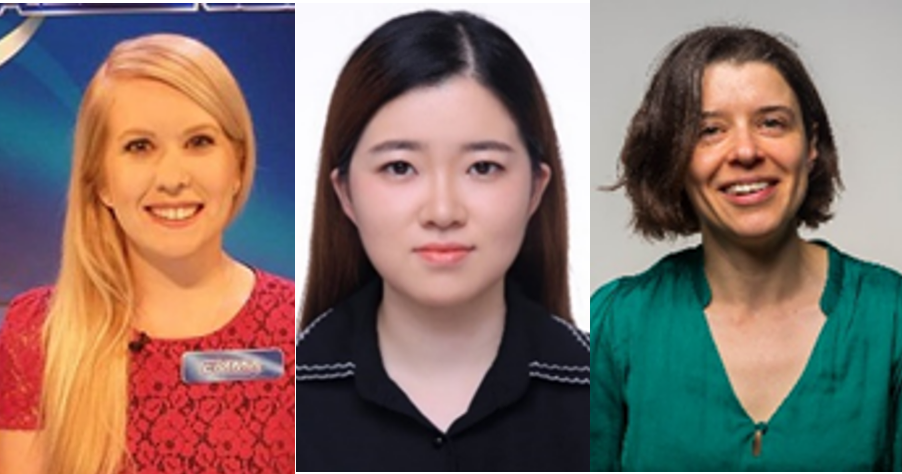
Dr Emma Wilson and Dr Jincan Zhang join as Research Associates; Dr Laura Blackburn joins as an Associate.
Dr Jincan Zhang Physical Sciences
Dr Jincan Zhang is currently a Research Associate at Cambridge Graphene Centre, Department of Engineering. Before moving to Cambridge, she was a project leader at Beijing Graphene Institute. Her research vision is on tackling the challenges towards practical applications of 2D materials and investigating their structure-performance relationships. She aims to develop new methods to grow, transfer, and functionalize graphene towards practical device applications, especially in energy and electronic fields.
Associates
Dr Laura Blackburn, Biomedical
Laura Blackburn has a PhD in Zoology and is Head of Science at PHG Foundation, a health policy unit at the University with a particular interest in the implementation of genomics and associated technologies into healthcare. She is responsible for the delivery of the scientific expertise and analysis that underpins the Foundation’s work and contributes to the development of its strategic partnerships with other organisations who have an interest in science and health policy.
Dr Ellen Higginson, Biomedical
Dr Ellen Higginson joined the University of Cambridge Department of Medicine as a Research Associate in 2018. Her area of expertise is in molecular microbiology and global health, with a focus on gastrointestinal pathogens. Dr Higginson completed her PhD at the University of Melbourne, Australia, before moving to the University of Maryland, Baltimore (UMB), USA to work on bacterial vaccines, including several global health projects, including stints in Kenya, Chile and Samoa.
Dr Colin Mitchell, Biomedical, Law, Humanities and Social Sciences
Colin is Head of Humanities at the health policy think tank, the PHG Foundation, which is part of the University of Cambridge. He leads a team working on legal and ethical issues that arise with genomics, data and biomedical innovations. These include challenges associated with AI in healthcare, safeguarding highly sensitive genetic data and the appropriate obligations of health and scientific professionals in the contemporary biomedical landscape.
Dr Amita Ummadisingu, Physical Sciences
Amita is a Swiss National Science Foundation Fellow at the Cavendish Laboratory. Her research interests are in sustainable energy technologies with focus on studying novel materials for opto-electronic applications which include solar cells, light emitting diodes (LEDs), photodetectors and lasers. She specializes in the formation of semiconductors from solutions for thin film devices. Her doctoral work at École polytechnique fédérale de Lausanne (EPFL) unravelled the formation of three-dimensional perovskite materials for the fabrication of highly efficient solar cells.
Visiting Associates
Dr Nazneen Nazeer Biomedical, Education and Humanities and Social Sciences
Dr Nazeer is a postdoctoral fellow from Sri Lanka specializing in Public Health, with research interests are primarily in the area of child and adolescent mental health where in she completed her MD thesis on Attention Deficit Hyperactivity Disorder (ADHD) in primary school children exploring the various facets of the disorder including prevalence, determinants and comorbid conditions for the first time in Sri Lanka. She is also working on the impacts of Covid-19 on children and young people in England, exploring experiences of lockdown, service access and education.
27.9.22


